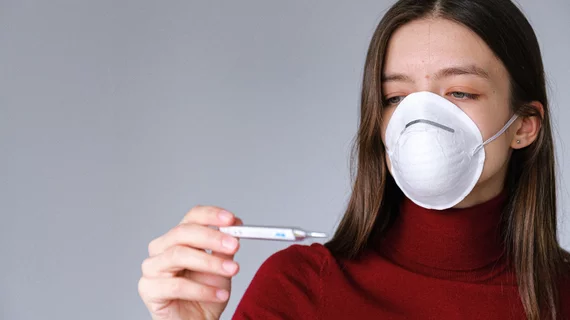AI armband for COVID screening passes muster for emergency use
The FDA has blessed an AI-packing armband that checks for biometric patterns pointing to possible SARS-CoV-2 infection in individuals with no symptoms.
Produced by Tiger Tech Solutions in Miami, the device combines light sensors with a computer processor to obtain blood flow signals in three to five minutes, according to FDA.
The processor feeds this data to a machine learning algorithm, which tells clinicians whether or not the patient has any common signs of asymptomatic COVID infection such as incongruous blood clotting.
The agency has authorized the device, the COVID Plus Monitor, for emergency use during the pandemic.
Tiger Tech says the product leverages AI in much the same way as facial recognition systems and works best in concert with unremarkable fever checks.
FDA official Jeff Shuren, MD, JD, says the EUA demonstrates the agency’s commitment to “continuing to support innovative methods to fight the COVID-19 pandemic through new screening tools.”
Shuren adds that the technology could be appropriate not only for healthcare facilities but also at schools, workplaces, theme parks, stadiums and airports.

